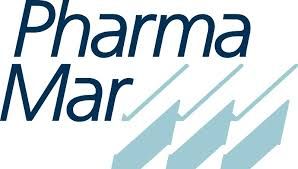预约演示
更新于:2025-05-07

Luye Pharma Group Ltd.
更新于:2025-05-07
概览
标签
肿瘤
神经系统疾病
内分泌与代谢疾病
小分子化药
单克隆抗体
生物类似药
疾病领域得分
一眼洞穿机构专注的疾病领域
暂无数据
技术平台
公司药物应用最多的技术
暂无数据
靶点
公司最常开发的靶点
暂无数据
| 排名前五的药物类型 | 数量 |
|---|---|
| 小分子化药 | 29 |
| 单克隆抗体 | 16 |
| 生物类似药 | 7 |
| 脂质体药物 | 5 |
| 中药 | 4 |
关联
107
项与 綠葉製藥集團有限公司 相关的药物作用机制 多巴胺重摄取抑制剂 [+2] |
在研机构 |
原研机构 |
最高研发阶段批准上市 |
首次获批国家/地区 中国 |
首次获批日期2022-11-01 |
靶点 |
作用机制 DNA抑制剂 |
在研机构 |
原研机构 |
最高研发阶段批准上市 |
首次获批国家/地区 美国 |
首次获批日期2020-06-15 |
靶点- |
作用机制- |
在研机构 |
原研机构 |
在研适应症 |
非在研适应症- |
最高研发阶段批准上市 |
首次获批国家/地区 中国 |
首次获批日期2020-04-24 |
200
项与 綠葉製藥集團有限公司 相关的临床试验NCT06793995
A Phase 1 Study to Evaluate the Effect of Food and Age on the Pharmacokinetics of LPM526000133 Fumarate Capsules (LY03017) in Healthy Volunteers
This study consists of 2 parts. Part A is a randomized, open-label, 2-period, crossover study to evaluate the food effect of LY03017 in healthy adults. Part B is a single-arm study to evaluate the safety and pharmacokinetics of LY03017 in elderly volunteers.
开始日期2025-02-01 |
申办/合作机构 |
NCT06731868
A Multicenter, Randomized, Double-blind, Placebo-controlled Clinical Trial to Evaluate the Safety, Tolerability, Preliminary Efficacy and Pharmacokinetic Characteristics of Multiple Doses of LPM3770164 Sustained-release Tablets in Patients With Tardive Dyskinesia
This is a multicenter, randomized, double-blind, placebo-controlled parallel-group trial to evaluate the safety, tolerability, preliminary efficacy and PK characteristics of multiple doses of LPM3770164 sustained-release tablets in TD patients.
开始日期2025-01-14 |
申办/合作机构 |
CTR20244665
评价LPM3770164缓释片多次给药在迟发性运动障碍患者中的安全性、耐受性、初步有效性和药代动力学特征的多中心、随机、双盲、安慰剂平行对照临床试验
主要目的:
评价LPM3770164缓释片不同剂量在迟发性运动障碍(TD)患者中的安全性、耐受性;
初步评价不同剂量LPM3770164缓释片治疗TD患者的有效性,并探索有效剂量范围;
次要目的:
评价不同剂量LPM3770164缓释片给药后在TD患者中的药代动力学(PK)特征。
开始日期2025-01-13 |
申办/合作机构 |
100 项与 綠葉製藥集團有限公司 相关的临床结果
登录后查看更多信息
0 项与 綠葉製藥集團有限公司 相关的专利(医药)
登录后查看更多信息
120
项与 綠葉製藥集團有限公司 相关的文献(医药)2025-06-01·Food and Chemical Toxicology
20-Week toxicity study of rotigotine behenate extended-release microspheres for intramuscular injection in sprague dawley rats
Article
作者: Qin, Caiyi ; Zhang, Hong ; Tian, Jingwei ; Lv, Wenjing ; Zhao, Xinyu ; Cen, Xiaobo ; Yu, Xin ; Wu, Mengting ; Yin, Zhicong ; Chen, Yumeng ; Guo, Wei
2025-04-25·Cancer Research
Abstract CT067: Preliminary safety and efficacy results of an anti-CD25 monoclonal antibody (BA1106) in patients with advanced solid tumors: The first-in-human study
作者: Zhou, Ming ; Liu, Dan ; Dou, Changlin ; Song, Deyong ; Zhang, Qingyuan ; Shen, Lin ; Wang, Zhijie ; Wang, Junye
2025-04-10·Journal of Medicinal Chemistry
Rational Design of the First Dual Agonist at Trace Amine-Associated Receptor 1 and 5-HT2C Receptors Based on Binding Pocket Similarity for the Treatment of Schizophrenia and Alzheimer’s Disease-Related Psychosis
Article
作者: Wang, Hongbo ; Dai, Yusen ; Lu, Jing ; Wang, Wenyan ; Wang, Yunjie ; Yu, Pengfei ; Liu, Chunjiao ; Zou, Fangxia ; Wang, Lin ; Lei, Hui ; Wang, Bingsi ; Yang, Yifei ; Tian, Jingwei ; Dong, Lin ; Deng, Xuan ; Ma, Mingxu ; Wei, Shujuan ; Ye, Liang ; Zhang, Jianzhao
1,468
项与 綠葉製藥集團有限公司 相关的新闻(医药)2025-05-01
·医药地理
◀一、232关税调查▶2025 年 4 月,美国政府依据《贸易扩展法》第 232 条款,正式启动对进口药品的国家安全调查,涵盖成品药、仿制药、原料药(API)及关键成分,旨在评估进口依赖对美国医疗供应链的威胁。特朗普政府声称此举意在推动“制造业回流”,通过加征关税迫使跨国药企将生产环节迁回美国,重塑本土供应链优势。这一政策被视为继钢铁、铝制品后,美国以“国家安全”为名实施贸易保护的新动作,对中国药企的全球布局构成直接挑战。图源:美国联邦公报(Federal Register)网站◀二、国内挑战▶1. 原料药出口风险加剧中国是全球最大的原料药生产国,2024 年对美原料药出口额达 45.2 亿美元,占中国原料药总出口的 10.6%。美国市场对中国原料药依赖显著:95% 的布洛芬、70% 的对乙酰氨基酚、40% 的肝素等均来自中国。若加征关税,高度依赖美国市场的企业(如新华制药、华海药业)将面临订单流失和成本上升的双重压力,价格竞争力可能被印度等低成本国家削弱。图:2024年我国原料药前十大出口市场(亿美元)来源:中国医药保健品进出口商会2.制剂出口与审批受阻中国对美制剂出口占比虽不足 6%,但关税叠加可能进一步挤压市场份额。此外,美国可能以供应链安全为由延缓中国药企的 FDA 审批流程。例如,华海药业 2023 年美国营收占比 13%,若审评周期延长 3-6 个月,其市场拓展计划将受重创。◀三、各方态度▶1.美方:政治目标与产业现实的撕裂美国政府以“国家安全”为名推动232调查,实则裹挟贸易保护主义,试图通过关税倒逼医药供应链回流,但其政策合理性遭行业质疑。大型跨国药企因成本激增与供应链断裂风险公开反对,本土仿制药企虽短期获益,但长期面临原料断供隐患。药学会测算显示,关税或致美国处方药价格年均上涨15%-20%,医保基金与患者负担加重。美国政府虽试图通过FDA审批延缓等手段施压,但中国原料药在美仿制药市场的不可替代性(如95%布洛芬依赖中国)使其政策效果打折,部分企业已游说国会豁免关键品类。2.中方:政策协同与企业突围并进中国政府通过税收优惠、创新激励与产业引导形成“组合拳”,支持药企从规模竞争转向技术突围。头部企业(如恒瑞、百济神州)以高研发投入(2024年研发强度近30%)布局创新药管线,腰部企业(如绿叶、科伦)聚焦高端制剂与生物类似药,中小企业则通过东南亚建厂规避关税。行业协会呼吁“创新替代规模”,推动原料药出口联盟议价。3.国际行业:供应链区域化与技术标准博弈全球产业链分化加速,印度、东南亚承接部分产能,但配套能力不足;欧洲强化本土供应链韧性,但成本高昂。技术标准成为竞争焦点,美国借FDA审查施压,中国药企则通过EMA、PMDA认证实现多路径出海。◀四、应对策略▶政策层面,中国通过降低 CAR-T 疗法用病毒载体等关键原料关税(2025 年降至 0%)、推动医疗器械国产化(如外科植入材料关税下调 1.5-4 个百分点),为药企降本增效提供支持。企业层面,通过拓展“一带一路”及新兴市场,降低对美依赖。2024 年中国原料药出口欧盟、印度、东盟占比超 50%,美国仅占 9.87%。 同时加强校企合作,整合技术资源加速创新转化。◀五、结语▶美国 232 关税调查短期内将加剧中国药企的出口压力,但也倒逼行业加速创新与供应链重构。通过技术升级、国产替代和国际化布局,中国药企有望从“仿制药大国”向“创新药强国”转型。正如礼来 CEO 所警示,关税可能导致全球新药研发放缓,但中国凭借内需市场与政策韧性,或将在危机中孕育新一轮产业升级的契机。END如需获取更多数据洞察信息或公众号内容合作,请联系医药地理小助手微信号:pharmadl001
生物类似药医药出海一致性评价
2025-04-29
·博安生物
博安生物宣布,其自主开发的非IL-2阻断型抗CD25创新抗体BA1106的早期临床研究进展亮相2025年美国癌症研究协会(AACR)年会。BA1106为国内首个进入临床阶段并用于治疗实体瘤的非IL-2阻断型抗CD25创新抗体,其在中国的临床研究正在积极推进中。调节性T细胞(Treg)是肿瘤微环境中的重要免疫抑制细胞,抑制T细胞等多种免疫细胞的抗肿瘤效果,其广泛存在于各种肿瘤组织中,包括宫颈癌、肾癌、卵巢癌、黑色素瘤、胰腺癌、肝细胞癌、胃癌及乳腺癌等,高Treg水平与生存负相关。CD25(白介素-2受体α亚基,IL-2Rα)在Treg中高表达,是一种高潜的广谱性抗肿瘤免疫治疗靶点,靶向CD25可以清除Treg、增强T细胞抗肿瘤效果。当前CD25抗体的开发面临两大难题:一是CD25在效应T细胞(Teff)中低表达,高活性的CD25抗体在清除Treg的同时可能误清除Teff;二是其他公司开发的抗CD25抗体通常阻断IL-2的信号通路,降低T细胞抗肿瘤活性。BA1106从分子设计上解决了上述两大难题。BA1106在体外活性研究中展现出“适度”的ADCC效应,既能清除CD25高表达的Treg,解除免疫抑制,又能保留CD25低表达的Teff,这一过程不会干扰IL-2信号通路,使Teff发挥免疫作用。此次在AACR年会上发布的研究为一项多中心、开放标签的首次人体1期临床试验的早期研究结果。至数据截止时间,31例复发难治晚期实体瘤患者接受了至少一次BA1106治疗,研究结果显示:■BA1106具有覆盖多种实体瘤的潜力:在31例经过多线治疗的转移性实体瘤患者中,观察到BA1106治疗多种实体瘤后病灶缩小,并长期稳定,最长治疗时间已超1年,获益患者既往均接受过免疫治疗后疾病进展;■BA1106药效学指标与机制相适应:观察到预期的外周血Treg减少,Teff与Treg的比值升高倍数显著,且未观察到对Teff的杀伤,具有优异的药效学特征;■BA1106展现出良好的安全性和耐受性:至最高1.2mg/kg剂量组未达到最大耐受剂量(MTD),也未出现与治疗相关的严重不良事件(SAE);BA1106的SAE、治疗相关不良事件(TRAE)和皮肤毒性较低,与适度的Treg杀伤有关;■BA1106的PK特征良好,免疫原性低,抗药物抗体(ADA)检测结果均为阴性。此外,BA1106临床前研究亦显示其对于早期和晚期肿瘤模型均有较好的治疗效果,且与PD-1抑制剂联用表现出良好的协同效应。研究结果已发表于《Nature》杂志子刊《Scientific Reports》1。博安生物研发总裁兼首席运营官窦昌林博士表示:“Treg对肿瘤免疫有明确的负调控作用,是多种实体瘤预后不良的重要因素,消除Treg是当前肿瘤免疫治疗的热点。现有研究数据表明,BA1106清除Treg同时未影响Teff,早期单药临床已经观察到初步疗效,具有覆盖多种实体瘤的潜力,与独特抗体设计下‘适度’的Treg杀伤活性有关。BA1106与PD-1抑制剂(BA1104,纳武利尤单抗)的联合治疗临床试验已获批准,将在免疫耐药和免疫初治的特定实体瘤中逐步探索,未来更值得期待。”关于博安生物博安生物(6955.HK)是一家全面综合性生物制药公司,专业从事生物药开发、生产和商业化,专注于肿瘤、自身免疫、眼科和代谢疾病。公司的新药发现活动围绕多个平台展开,包括全人抗体转基因小鼠及噬菌体展示技术平台、双特异T-cell Engager技术平台、抗体药物偶联(ADC)技术平台及细胞治疗平台。博安生物拥有完整的涵盖抗体发现、细胞株开发、上游及下游工艺开发、分析及生物分析方法开发、技术转移、非临床研究、临床研究、法规与注册及商业化规模生产的全整合型产业链。在细胞治疗领域,博安生物聚焦新一代增强型及可调控T细胞治疗技术,研发更安全、有效、可负担的细胞治疗产品。目前,博安生物已有三款产品获批上市,两款产品正处于上市许可申请的审评阶段,另有多个具有国际知识产权保护的创新型生物药和生物类似药的在研产品组合。公司荣获“国家高新技术企业”和国家级专精特新“小巨人”企业认定,并拥有“山东省省级新型研发机构”、“山东省工程研究中心”及“山东省企业技术中心”等省级技术平台。除了在中国,博安生物也在包括美国、欧洲和日本在内的海外市场从事生物药产品开发。基于差异化的产品组合以及不断成熟的商业化能力,博安生物已构建起覆盖“研发-生产-商业化”的全产业价值链运营体系,为其长期的高质量发展奠定坚实基础。参考文献:1.Song D, Liu X, Dong C, et al. Two novel human anti-CD25 antibodies with antitumor activity inversely related to their affinity and in vitro activity. Sci Rep. 2021;11(1):22966. Published 2021 Nov 25. doi:10.1038/s41598-021-02449-y
AACR会议临床结果临床1期
2025-04-28
·药智网
诚然,2024年对于医药企业而言,多是一言难尽,是失望与希望并存,也是想方设法活下去的一年。但天下大势,往往是分久必合,合久必分,隐约间医药领域已迎来新的希望。随着2024年众多Biotech企业的年报公布,一方面部分头部Biotech企业运营渐入佳境,营收实现显著增长,另一方面众多Biotech企业抗住生存压力,亏损大幅收窄的同时,更有部分企业成功扭亏为盈,迈入良性发展轨道。乍一看,“中国创新药”似乎正在重构全球新药市场版图,国产Biotech捷报频传,成绩斐然,其背后到底是昙花一现,抑或是否极泰来?六成Biotech营收上涨截止目前,国内73家Biotech代表企业的2024年报已公布完毕,不可否认,尽管经济下行趋势并未明显改变,行业也仍未完全走出阵痛期。但真正优秀的企业,必定不会沉沦太久,压抑之下,迎来的往往是更强烈的爆发。据统计,73家Biotech企业中,营收呈上涨趋势的Biotech企业共计45家,占比62%,另还有8家Biotech企业首次实现营收;而与之相反,仅有15家Biotech企业营收下降、5家Biotech无产品收入。相较创新药至暗时刻的前两年,医药行业能在这经济下行时期取得如此成绩,着实令人意外。数据来源:公开数据整理,企业年报而细节方面,在营收上涨与首次实现营收的Biotech企业中,其业绩拐点的底层逻辑虽各有不同,但总体上仍大致可分为首款商业化产品放量、多元化适应症扩展与合作授权紧密三种类型。业绩变化关键点1:首款商业化产品上市首先,在73家Biotech企业中,部分尚处于初创Biotech阶段的企业虽整体营收体量不大(多数全年营收不超1亿元),但其营收增速却尤为明显,共计21家Biotech企业营收涨幅超100%,28家Biotech企业营收增幅超50%,宜明昂科、智翔金泰、和誉医药分别位列营收增速榜前三。对于这部分企业,究其业绩增长背后的底层逻辑,多是由于2024年间首款或次首款商业化产品上市所致,凸显Biotech行业如今为数不多的新生力量。其中,比较具有代表意义的企业有以下几者:智翔金泰:系2024年赛立奇单抗注射液获批上市并产生销售收入,而上年同期仅有对外提供技术服务等产生的少量营业收入。亚虹医药:2023年底培唑帕尼片和马来酸奈拉替尼片开始商业化,导致2024年营收显著增长。云顶新耀:两款核心产品布地奈德与依拉环素的商业化放量,前者2023年底国内获批以后,销售增长明显(+1581%)。科济药业:CAR-T疗法赛恺泽(2024年上市)覆盖实体瘤治疗领域并加速市场渗透,2024年期间销售贡献显著,实现收益3.94亿元。加之,与华东医药等企业的合作,于期间获得里程碑付款7500万元。迪哲医药:第二款核心产品国家1类创新药戈利昔替尼上市通过优先审评获得国家药监局批准上市(2024年6月),成为2024年业绩主要增长来源。业绩变化关键点2:合作授权照理说,前几年的Biotech的行业通过合作授权实现营收、净利双增长的案例已经足够普遍,但在2024年期间,国内合作授权对Biotech企业的业绩助力作用却有所下降(数量)。分析其背后,原因大致有二:一者,由于Biotech实力积蓄,部分核心品种逐渐由临床进入商业化阶段,授权收入不再是企业唯一的回血途径;二者,合作授权一般情况下会与市场风口强势绑定,比如GLP-1盛行,那么关于该领域的BD合作也必定更受关注,数量也更多,而2024年似乎并没有什么新出现的风口趋势。因此,虽然部分优质项目的合作授权仍在继续,甚至金额更甚以前,但总体上授权交易已不再是国内Biotech企业主要创收。当然,2024年间仍有部分Biotech企业的业绩增长是依靠BD交易完成,同样值得重点关注:宜明昂科:2024年8月1日与Instil Bio达成合作,将双特异性抗体IMM2510以及下一代CTLA-4抗体IMM27M在大中华区以外的开发和商业化权利授予后者,并于期间收取了相关首付款及近期付款。和誉医药:业绩增长主要源于4.97亿元的默克授权收入与0.067亿的艾力斯里程碑付款。亚盛医药:武田支付的1亿美元选择权款及7500万美元股权投资直接贡献了超7.2亿元收入,以及核心上市产品耐立克的强劲销售,全年实现收入人民币2.41亿元。兆科眼科:2020年10月签署的阿达帕林/盐酸克林霉素复方凝胶协议,在2024年获得里程碑付款3350万元,直接推动业绩增长。业绩变化关键点3:多元化产品矩阵在业绩增长层面,除了小规模初创企业取得较高营收同比增速外,部分营收规模较大、上市产品较多的老牌Biotech企业在营收增长值方面的成就同样值得关注,这部分企通常不再单纯依赖新品上市来实现业绩增长,更多的还是通过适应症扩展、产品全球化等策略,来建立多元化产品矩阵,巩固行业统治地位。其中,最具代表意义的就有百济神州、信达生物、君实生物等。百济神州:收入增长主要得益于百悦泽(2019年)与百泽安(2019年)的销售增长,其中百悦泽由于CLL适应症拓展,全球销售额增速明显,尤其是美国销售额达138.90亿元,同比增长107.5%。信达生物:业绩增长主要得益于核心产品放量(信迪利单抗为主)、新产品贡献(商业化产品增至15款)与授权收入三个板块。君实生物:得益于获批适应症增至11项、新增多项纳入国家医保目录以及全球获批进展,特瑞普利单抗覆盖患者群体显著扩大,2024年销量大幅提升,销售额同比增长超60%。同时,多元化矩阵之下,阿达木单抗、氘瑞米德韦与昂戈瑞西单抗等新药的销售额也呈现协同增长趋势。艾力斯:核心产品甲磺酸伏美替尼片续约纳入国家医保目录,销售收入持续增长。再鼎医药:业绩主要主要受卫伟迦(2023年9月上市、2024年1月进入医保)、则乐、纽再乐所致的销售额增长所致。特宝生物:受乙肝临床治愈需求爆发,核心产品派格宾(2016年上市)销售放量驱动营收增长,成为2024年业绩主要来源,销量从68万支(早期)增至411万支,复合增速达43%,单价稳定在550-600元/支区间。荣昌生物:2024年期间,泰它西普(2021年上市)与维迪西妥单抗(2021年上市)两款核心产品商业化进程进一步加速,适应症快速扩展之下,销售收入与销量快速增长。神州细胞:作为国内首个获批的重组人凝血八因子药物,期间神州细胞的安佳因(2021年上市)销售额突破20亿元,同比增长超12%,占公司总收入近80%,同时多产品线协同策略之下,其他上市产品(如CD20单抗等)销售收入同步增加,推动公司整体营收增长。8家Biotech扭亏为盈对于Biotech企业而言,由于需要常年维持较为刚性的研发投入,且新药品种上市周期长、审批通过率不高,因此增收不增利在医药行业中已是极为常见的情况。但2024年,却又不少药企在寒冬中重获新生。其剧变的业绩表现,也给了当下中国创新药以信心。具体数据上,73家Biotech企业中净利润增长比例达71.23%,其中36家Biotech亏损降低,占比36.49%;8家Biotech企业扭亏为盈,占比9.12%;7家Biotech利润上涨,占比7.1%。数据来源:公开数据整理,企业年报值得注意的是,在目前73家已公布年报的Biotech企业中,有8家药企净利润实现扭亏为盈,分别是百利天恒、信达生物、神州细胞、和誉医药、康宁杰瑞、百奥赛图、科兴制药与博安生物。企业2024年净利润(亿元)2023年净利润(亿元)变化情况百利天恒37.08-7.80扭亏为盈信达生物3.3-5.15扭亏为盈康宁杰瑞制药-B1.66-2.11扭亏为盈神州细胞1.12-3.96扭亏为盈博安生物0.73-1.19扭亏为盈百奥赛图-B0.34-3.83扭亏为盈科兴制药0.31-1.90扭亏为盈和誉-B0.28-4.32扭亏为盈数据来源:公开数据整理,企业年报当然,这部分企业净利润扭亏手段不一定严格依赖于上述所讲的2024年营收增长,也可能是诸多“节流”手段所致,比如部门合并、裁员、优化运营效率,大砍销售费用等。百利天恒:2024年百利天恒共计净利润收入37.08亿元,首次实现扭亏为盈。这主要得益于收到BMS关于核心产品BL-B01D1的8亿美元首付款,但该笔收入终究属于非经常性收益,后续长期盈利或许仍需依赖产品商业化进展(最高临床阶段尚处于临床I期)。信达生物:2024年信达生物实现净利润3.3亿元,其扭亏为盈的核心逻辑在于肿瘤产品放量(信迪利单抗注射液收入同比增长43.6%)、授权收入增长(海外合作伙伴里程碑付款11亿元,同比增长146%)+运营效率提升(期间费用率同比下降约10个百分点,精细化营销策略成效显现)的三重驱动。神州细胞:2024年神州细胞实现净利润1.12亿元,其业绩扭亏为盈的核心驱动力在于核心产品收入爆发(重组人凝血因子Ⅷ国产替代效应加速释放,期间收入同比提升33.13%至25.13亿元)与精细化成本管控(研发费用同比下降、聚焦高潜力管线、费用率显著改善)的双重作用。和誉医药:2024年净利润共计0.28亿元,首次实现扭亏为盈,其业绩变化的核心逻辑首先在于与默克关于ABSK021的7000万美元合作首付款,其次是运营重心聚焦商业化临近项目,暂停非核心管线投入,使得研发费用增速低于收入增速。康宁杰瑞:2024年净利润共计1.66亿元,首次实现扭亏为盈,其业绩变化的核心逻辑在于BD收入兑现+技术平台变现+成本优化的三重驱动。BD方面,与Glenmark、ArriVent及石药集团,全年许可费收入达4.64亿元;平台变现方面,与先声药业、思路迪医药达成的合作(康宁杰瑞负责生产,合作方承担临床及销售),实现销售与特许权使用费1.74亿元;成本优化方面聚焦高潜力管线(如KN026、KN052)减少非核心项目投入,提升研发投入产出效率。百奥赛图:2024年扭亏为盈的核心逻辑在于高毛利业务全球化扩张(对外转让的抗体分子数量快速增加)+战略收缩降本(暂停部分低优先级靶点研发,集中资源推进临近商业化的高潜力管线,研发费用同比下降约15%)+运营效率提升(销售及管理费用率同比下降5个百分点)的三重协同。科兴制药:其2024年净利润扭亏关键在于三个主要内容,一者是核心产品海外放量(白蛋白紫杉醇在欧盟区域的销售大幅增长,整体海外收入占比提升);二者是成本端深度优化(销售费用同比下降13.42%至5.97亿元,研发费用同比大幅缩减51.26%至1.68亿元);三者是研发资源聚焦(减少低效研发项目投入,,研发费用率从高位回落,研发产出效率提升)。博安生物:2024年实现净利润0.73亿元,其扭亏为盈的关键在于商业化放量+成本端深度优化+技术授权变现的三重驱动。商业化方面,BA1101与BA6101两款产品2024年销量显著增长;成本优化方面,销售、研发及管理费用总额同比下降23%,成功实现控费增效;授权变现方面,通过技术授权和临床前服务合作,2024年新增许可收入,补充现金流。其实,对于绝大多数Biotech企业而言,其实现净利润拐点的关键其实都无外乎“开源”与“节流”两者,但两者推进却各有优劣,节流效果显著,但却可能对企业长期创新力产生不利影响,无异于饮鸩止渴,只能作为固定阶段壮士断腕的无奈选择。而更具可持续发展的“开源”层面,其难度却更大,其过程中往往需要面临诸多死结,比如:从实验室到市场的“死亡之谷”:高达90%的临床试验折戟率,难以逾越的专利悬崖导致Biotech企业的商业化兑现难度巨大,短时间内依靠产品开源几乎不可能。融资寒冬下的生存考验:全球新药领域融资金额同步下滑,过去上市初被众多投资者追捧的日子一去不复返,甚至连部分早期项目的估值也直接缩水50%,之后还有IPO窗口收窄、上市破发、对赌协议增加等诸多不利情况。市场准入挑战加剧:全球医保控费背景下,创新药定价受限,导致部分成功进入商业化阶段的创新药产品回血缓慢,进一步拉大收支差距。审批不确定性严峻:对于部分尝试海外创收的Biotech而言,更严格的审批要求、更严格的OS数据以及地缘政治风险也是直接导致Biotech企业开源困难的因素之一。而从数据上看,2024年净利润实现扭亏为盈的企业中,绝大多数均以商业化放量+运营优化双轮协同驱动,这一点上或可给诸多尚未实现业绩拐点的Biotech企业一定启发,即优化成本多是生存所需,而真正的翻身则需要节流与开源同步进行才行。小结其实,根据上述2024年Biotech企业营收、净利润的变化情况以及分析其变化的底层逻辑,关键词无外乎两个,即商业化与合作。可以说,对于如今的国内Biotech领域,真正的源头新药或许稍有不足,但常规的概念新药比比皆是,而如今的新药行业真正缺乏的、需要重点面对反而是前期Biotech甚少考虑的商业化问题,即国内创新药商业模式何时跑通?怎样才算是跑通?而目前来看,国内Biotech实现商业化成功的路径并没有严格意义的标准答案,既有自主搭建临床团队和营销网络的企业,也有依靠外授权高潜力管线,快速进入欧美市场的案例;既有坚持源头创新,立足全球化战略规划的企业,也有通过生物类似药积累经验与口碑,为后续新药产品提供现金流与渠道的成功企业。总体上,国内Biotech商业化成功的关键在于不应着像于单一层面,而应该充分考虑“全球化布局+产品组合协同+模式创新+运营优化”的立体策略,因为只有这样才能在未来不断应对各种频发的挑战与风险。2024年中国生物医药行业在跌宕中正在完成关键蜕变,业绩增长图谱清晰勾勒出三大战略路径:商业化破冰、管线深挖与生态协同。多家药企实现首款商业化产品也就印证了中国Biotech企业"从0到1"的创新兑现能力。未来三至五年,那些能突破FIC药物研发瓶颈、构建全球多中心临床体系、建立跨国商业化网络的企业,或将真正打开价值跃迁的天花板,让2024年的业绩拐点成为全球医药版图重构的历史起点。来源 | 博药(药智网获取授权转载)撰稿 | 博药内容中心责任编辑 | 邱浩洋声明:本文系药智网转载内容,图片、文字版权归原作者所有,转载目的在于传递更多信息,并不代表本平台观点。如涉及作品内容、版权和其它问题,请在本平台留言,我们将在第一时间删除。合作、投稿 | 马老师 18323856316(同微信) 阅读原文,是受欢迎的文章哦
细胞疗法免疫疗法引进/卖出上市批准
100 项与 綠葉製藥集團有限公司 相关的药物交易
登录后查看更多信息
100 项与 綠葉製藥集團有限公司 相关的转化医学
登录后查看更多信息
组织架构
使用我们的机构树数据加速您的研究。
登录
或

管线布局
2025年10月04日管线快照
管线布局中药物为当前组织机构及其子机构作为药物机构进行统计,早期临床1期并入临床1期,临床1/2期并入临床2期,临床2/3期并入临床3期
药物发现
6
15
临床前
临床申请批准
3
15
临床1期
临床2期
7
9
临床3期
申请上市
3
15
批准上市
其他
34
登录后查看更多信息
药物交易
使用我们的药物交易数据加速您的研究。
登录
或

转化医学
使用我们的转化医学数据加速您的研究。
登录
或

营收
使用 Synapse 探索超过 36 万个组织的财务状况。
登录
或

科研基金(NIH)
访问超过 200 万项资助和基金信息,以提升您的研究之旅。
登录
或

投资
深入了解从初创企业到成熟企业的最新公司投资动态。
登录
或

融资
发掘融资趋势以验证和推进您的投资机会。
登录
或

Eureka LS:
全新生物医药AI Agent 覆盖科研全链路,让突破性发现快人一步
立即开始免费试用!
智慧芽新药情报库是智慧芽专为生命科学人士构建的基于AI的创新药情报平台,助您全方位提升您的研发与决策效率。
立即开始数据试用!
智慧芽新药库数据也通过智慧芽数据服务平台,以API或者数据包形式对外开放,助您更加充分利用智慧芽新药情报信息。
生物序列数据库
生物药研发创新
免费使用
化学结构数据库
小分子化药研发创新
免费使用

